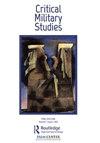跨国军国主义和民族主义:韩国卷入越南和伊拉克战争
Q1 Arts and Humanities
引用次数: 1
摘要
摘要以韩国卷入越南战争和伊拉克战争为案例,我们探讨了跨国军国主义作为全球化的一股突出力量(经常被忽视),它塑造了国家身份的构建和改变。基于“军事化现代性”的理论框架和对军国主义的批判研究,我们考察了跨国军国主义的两个特征对韩国国家“我们”意识建构的影响:参与这些战争的国家利益的话语表征,以及在跨国军国主义中介下与“他人”的实际和想象遭遇。我们认为,虽然越南战争的参与有助于冷战背景下反共、资本主义和军事化国家的建设,但一代人之后的伊拉克战争的参与促成了挑战冷战时期观点的世界性民族主义的出现。我们认为,随着地缘政治的变化,韩国公民主导的民主化是参与跨国战争的不同模式的主要因素。本文章由计算机程序翻译,如有差异,请以英文原文为准。
Transnational militarism and ethnic nationalism: South Korean involvements in the Vietnam and Iraq wars
ABSTRACT Using South Korea’s involvement in the Vietnam and Iraq Wars as case studies, we explore transnational militarism as a salient (often neglected) force of globalization that has shaped the construction and modification of national identity. Building on the theoretical framework of ‘militarized modernity’ and insights from critical studies of militarism, we examine the effect of two features of transnational militarism on the construction of South Korea’s sense of a national ‘we’: discursive representation of national interest in participating in these wars and actual and imagined encounters with ‘Others’ mediated by transnational militarism. We argue that while the Vietnam War participation was instrumental to the construction of the anticommunist, capitalist, and militarized nation in the context of the Cold War, the Iraq War participation a generation later contributed to the emergence of a cosmopolitan nationalism that challenged the views from the Cold War era. We identify South Korea’s citizen-led democratization as a major contributing factor for different modes of engagements with transnational wars, in association with shifting geopolitics.
求助全文
通过发布文献求助,成功后即可免费获取论文全文。
去求助
来源期刊

Critical Military Studies
Arts and Humanities-History
CiteScore
1.90
自引率
0.00%
发文量
20
期刊介绍:
Critical Military Studies provides a rigorous, innovative platform for interdisciplinary debate on the operation of military power. It encourages the interrogation and destabilization of often taken-for-granted categories related to the military, militarism and militarization. It especially welcomes original thinking on contradictions and tensions central to the ways in which military institutions and military power work, how such tensions are reproduced within different societies and geopolitical arenas, and within and beyond academic discourse. Contributions on experiences of militarization among groups and individuals, and in hitherto underexplored, perhaps even seemingly ‘non-military’ settings are also encouraged. All submitted manuscripts are subject to initial appraisal by the Editor, and, if found suitable for further consideration, to double-blind peer review by independent, anonymous expert referees. The Journal also includes a non-peer reviewed section, Encounters, showcasing multidisciplinary forms of critique such as film and photography, and engaging with policy debates and activism.
 求助内容:
求助内容: 应助结果提醒方式:
应助结果提醒方式:


